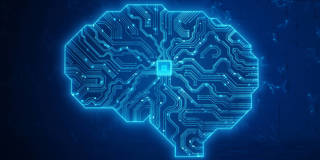While techno-optimists celebrate AI’s potential to reshape the world, we must mitigate the risks these new tools pose to communities and to humanity. To prevent the rich and powerful from monopolizing the fruits of technological innovation, we must ensure that the benefits of increased productivity are distributed equitably.
LONDON – A little over a year ago, the San Francisco-based OpenAI released its chatbot, ChatGPT, triggering an artificial-intelligence gold rush and reigniting the age-old debate about the effects of automation on human welfare.
The fear of displacement by machines can be traced back to the nineteenth-century Industrial Revolution, when groups of English handloom weavers, known as Luddites, began destroying the power looms that threatened their livelihoods. The movement, which peaked between 1811 and 1817, was ultimately suppressed by government forces, and its leaders were executed or exiled to Australia.
But the Luddites’ arguments found an unexpected (and somewhat ironic) champion in renowned economist David Ricardo, who argued in his 1817 book On the Principles of Political Economy and Taxation that “the opinion entertained by the laboring class, that the employment of machinery is frequently detrimental to their interests, is not founded on prejudice and error, but is conformable to the correct principles of political economy.” The British economist Nassau Senior, for his part, advised the weavers to “get out of that branch of production.”

LONDON – A little over a year ago, the San Francisco-based OpenAI released its chatbot, ChatGPT, triggering an artificial-intelligence gold rush and reigniting the age-old debate about the effects of automation on human welfare.
The fear of displacement by machines can be traced back to the nineteenth-century Industrial Revolution, when groups of English handloom weavers, known as Luddites, began destroying the power looms that threatened their livelihoods. The movement, which peaked between 1811 and 1817, was ultimately suppressed by government forces, and its leaders were executed or exiled to Australia.
But the Luddites’ arguments found an unexpected (and somewhat ironic) champion in renowned economist David Ricardo, who argued in his 1817 book On the Principles of Political Economy and Taxation that “the opinion entertained by the laboring class, that the employment of machinery is frequently detrimental to their interests, is not founded on prejudice and error, but is conformable to the correct principles of political economy.” The British economist Nassau Senior, for his part, advised the weavers to “get out of that branch of production.”